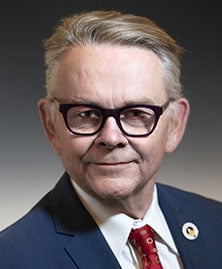CLEVELAND, Ohio (June 4, 2021) – Leaders of the SMART Transportation Division today announced their full support of the 2021 version of the Investing in a New Vision for the Environment and Surface Transportation in America (INVEST in America) Act.

The transformational $547 billion surface transportation reauthorization bill introduced today by House Transportation and Infrastructure Committee Chair Peter DeFazio of Oregon contains critical safety reforms for the bus, transit and freight rail industries. Similar to a 2020 version of the bill, provisions of the legislation mandate two-person freight rail crews and take steps to address the problems of bus operator and transit worker assault as well as other issues faced by SMART-TD’s bus, rail and transit members.
“Chairman DeFazio, Rep. Eleanor Holmes Norton and Rep. Donald Payne once again proved that they are receptive to the safety of and the needs of all SMART Transportation Division members,” SMART Transportation Division President Jeremy R. Ferguson said. “Every one of our members has a stake in this bill and in the protections and actions this legislation puts forth. We are thankful for the representatives’ work, and we support this effort to move the transportation industry ahead.”
“This bill is all-encompassing — seeking redesigns of bus operator compartments so that drivers are more protected, protecting transit workers from assault and looking into school bus safety. The representatives also heard our voices regarding almost every one of the concerns we have about the current state of the railroad industry — crew size, train length, the utility of Positive Train Control and safety investigations — to name a few,” National Legislative Director Greg Hynes said. “Elections have consequences, and with this legislation, we now have an avenue where many matters that are important to us can be resolved.”
A markup of the bill is scheduled to take place June 9.
The SMART Transportation Division is comprised of approximately 125,000 active and retired members of the former United Transportation Union, who work in a variety of crafts in the transportation industry.
